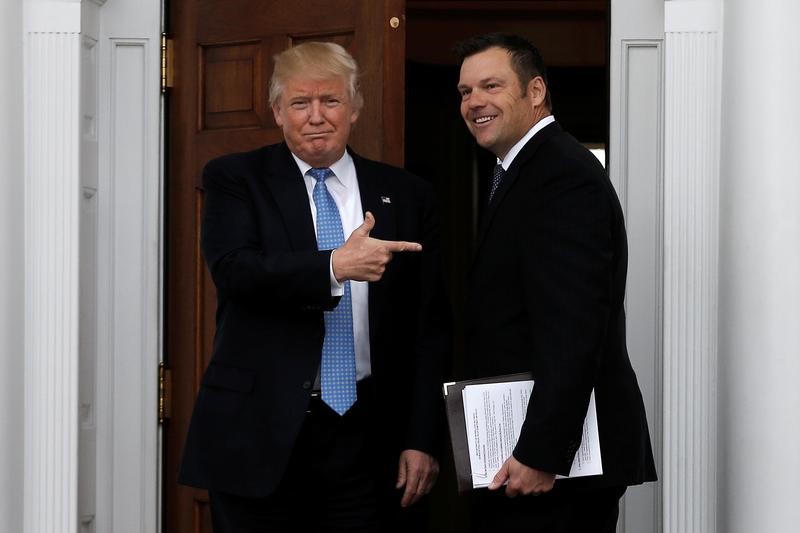By Julia Harte
WASHINGTON (Reuters) - The vice chairman of a voter fraud panel set up by U.S. President Donald Trump began soon after the election to draft legislative changes that would allow states to require voters to prove their citizenship when registering, court records show.
Kansas Secretary of State Kris Kobach, who has been on the panel since its creation in May, exchanged emails on the matter with Trump's transition team the day after the November presidential election, according to records unsealed by a federal judge on Thursday.
Kobach, who like Trump is a Republican, was ordered to release the records as part of a legal challenge that has enjoined a state law that required Kansans to provide proof of citizenship when registering to vote.
The records showed that by the day after the election, Kobach had already started drafting legislative changes that would permit all states to impose proof-of-citizenship requirements by amending the National Voter Registration Act, which lets Americans register to vote when they apply for driver's licenses.
The records shed light on a photograph taken several days after the election that showed Kobach, then a contender for a Cabinet post, standing with Trump and holding a document partially obscured by his arm and titled "Department of Homeland Security Kobach Strategic Plan for first 365 days."
Kobach fought the public release of the documents, which included a heavily redacted version of the document in the photograph, for months in federal court.
He and his spokeswoman did not immediately respond to requests for comment.
Any changes to the National Voter Registration Act, or "motor-voter law," require congressional approval.
Civil rights groups said they fear Kobach is using the Trump voting panel to drum up fake proof of widespread non-citizen voter fraud to persuade Congress to change the law.
Trump has said without evidence that there was widespread voter fraud in the November election. Most state election officials and election law experts say U.S. voter fraud is rare.
Requiring people to show birth certificates or other proof-of-citizenship when registering would be overly burdensome and would discourage young people, such as college students, said Dale Ho, director of the voting project at the American Civil Liberties Union.

The ACLU sued Kobach over the Kansas law, which it said blocked more than 35,000 people, nearly 14 percent of new registered voters, from voting over two years.